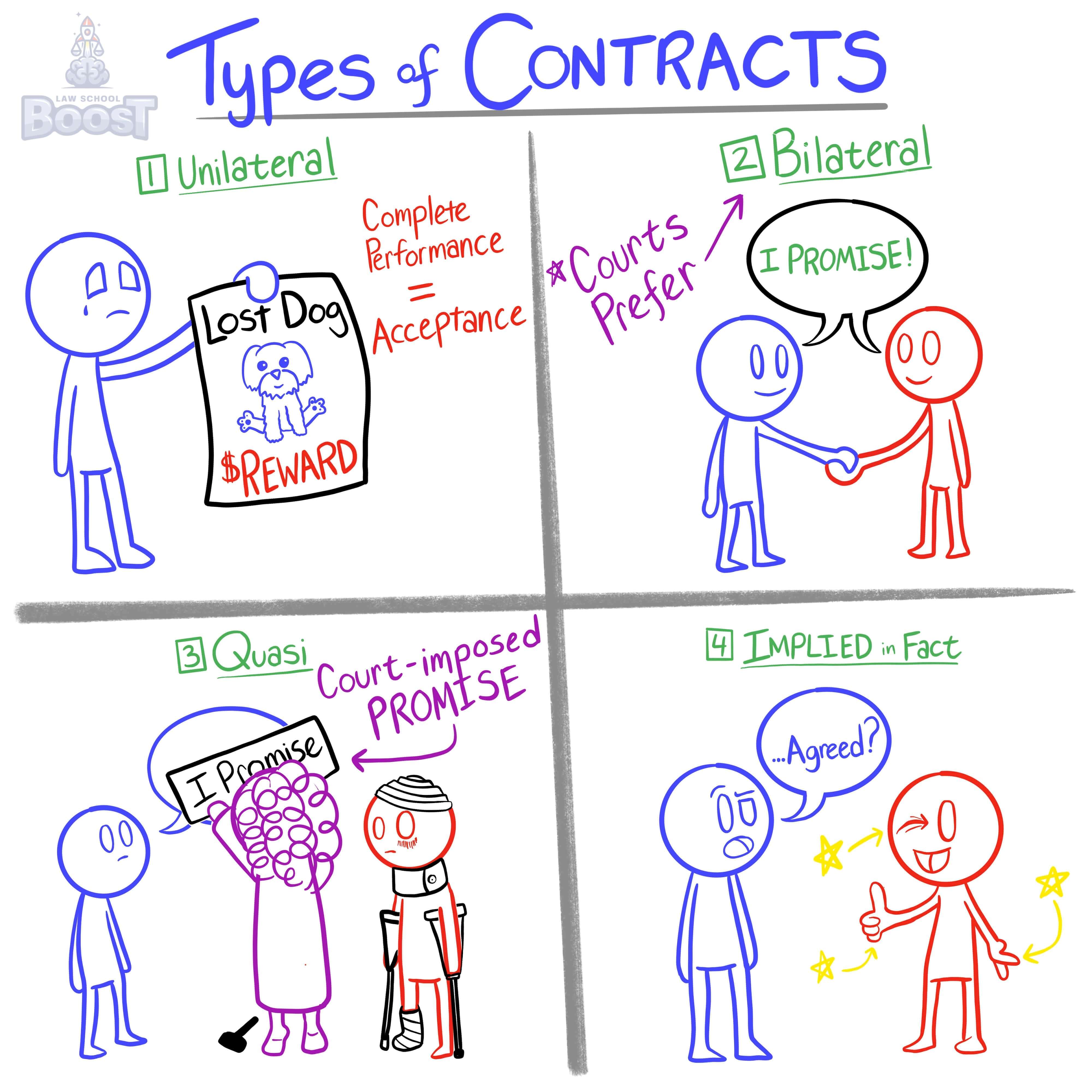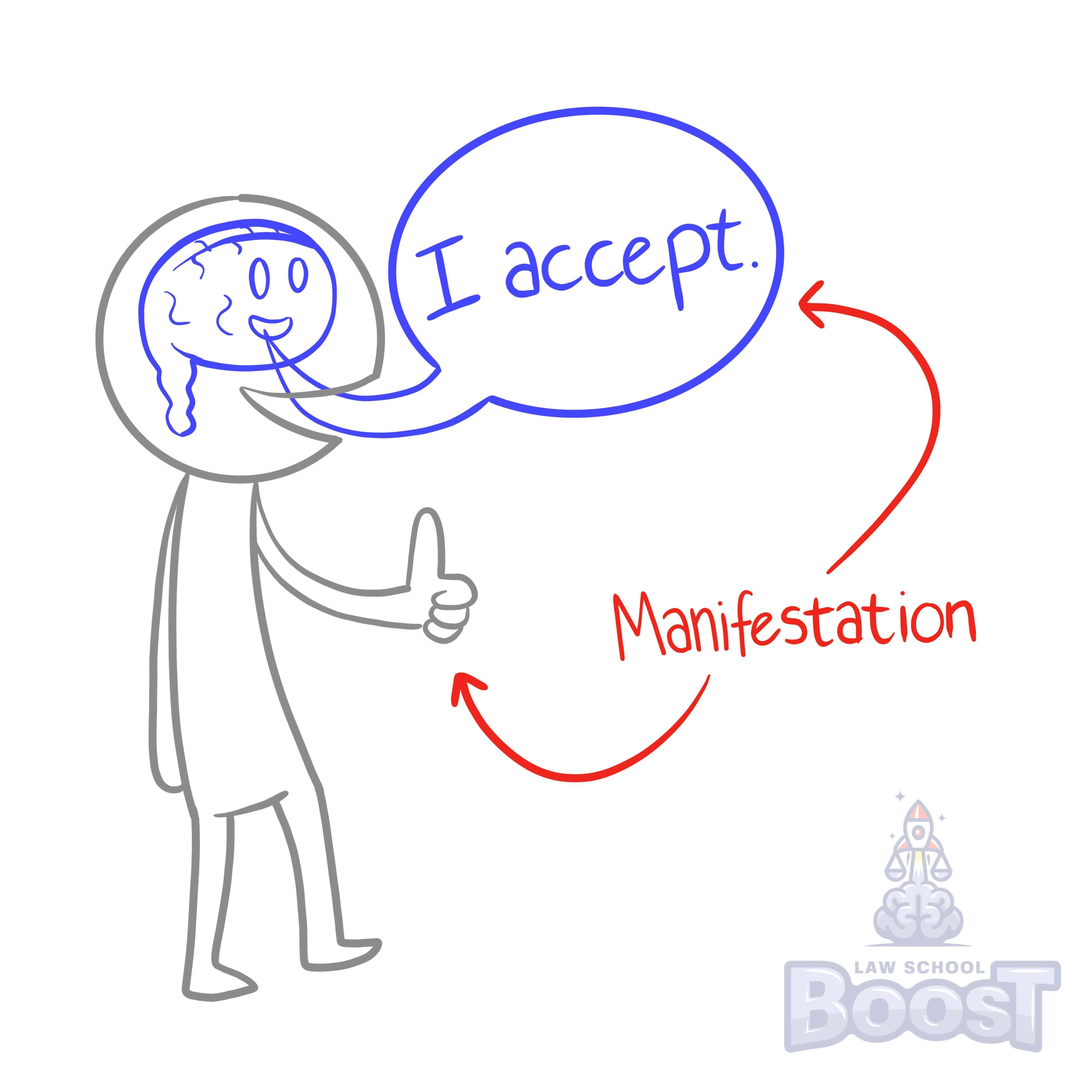🤔
Contracts • Types of Contracts
K#004
Legal Definition
Implied-in-fact contracts are formed by manifestations of assent via conduct or circumstance, not oral or written language.
Plain English Explanation
The best types of contracts are explicit, bold, and blatant. Unfortunately, law school and the bar exam aren't always interested in testing obvious contracts. It's not uncommon for some contracts to be implied from the fact pattern, rather than be explicitly stated (orally or in writing). If you identify facts that seem to imply the existence of a contractual relationship, then it is possible to argue that there was an implied-in-fact contract, meaning the facts imply the existence of a contractual relationship.
Hypothetical
Hypo 1: Sam mows lawns to make extra money. One day, he asks Bob if Bob would like him to mow his lawn for $20. Bob agrees. Sam mows his lawn and, when he's finished, Sam knocks on the door and asks for payment. Bob pays Sam $20. A week later, without asking Bob, Sam mows Bob's lawn. When he asks for payment, Bob pays Sam $20. This continues for 3 more weeks until, one day, after Sam mows Bob's lawn, Bob refuses to pay Sam and shuts the door on his face. Result: The first time Sam offered to mow Bob's lawn for $20 and Bob accepted, a valid, binding contract was created that obligated Bob to pay Sam $20 after mowing his lawn. However, there was no explicit contract for the subsequent weeks. Bob had every right to not pay Sam the 2nd time he mowed his lawn without explicitly talking to him about it, but because he paid Sam, and continued to pay Sam each week, a court would likely find that an implied-in-fact contract was formed because Sam continued to mow Bob's lawn each week on schedule, and Bob continued to pay. Thus, when Bob refused to pay Sam the last time his lawn was mowed, he was in breach of this implied-in-fact contract and owes Sam $20.
Visual Aids





